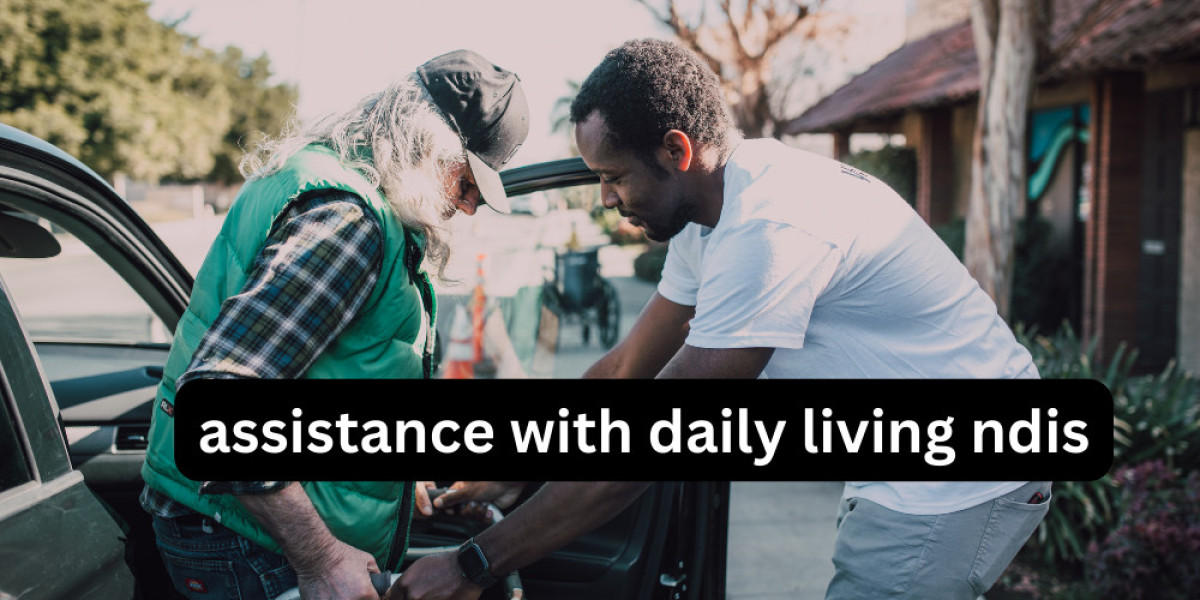Comprehensive Guide to Assistance with Daily Living under the NDIS
The National Disability Insurance Scheme (NDIS) in Australia offers a wide range of support services to help individuals with disabilities live as independently as possible. One of the most essential supports provided under the NDIS is assistance with daily living ndis. This guide explores what ADL entails, its benefits, the services available, and how to access and maximize this support.
What is Assistance with Daily Living (ADL)?
Assistance with Daily Living is a category of support provided under the NDIS that focuses on helping participants manage everyday tasks and activities. It is designed to empower individuals with disabilities to lead an independent and fulfilling life, whether at home, in the community, or in supported living environments.
Key Objectives of ADL Support
- Promote independence in daily tasks.
- Improve the quality of life through tailored support.
- Foster participation in the community.
What Does ADL Cover?
ADL supports a wide range of activities, which are divided into personal care and household tasks. These services are customized to the participant's needs and goals as outlined in their NDIS plan.
Personal Care
Personal care services help with essential tasks related to hygiene, mobility, and health. This includes:
- Assistance with showering, bathing, and dressing.
- Support with grooming, toileting, and continence management.
- Help with eating, drinking, and taking medications.
- Mobility assistance, including getting in and out of bed.
Household Tasks
These services ensure participants can maintain a clean, safe, and functional living environment. Examples include:
- Cleaning and laundry.
- Meal preparation and grocery shopping.
- Gardening and basic home maintenance.
- Support with organizing and managing the home.
Community Support
Some ADL supports also extend to helping participants engage in the community:
- Transportation to appointments, social activities, and errands.
- Accompanying participants to community programs or events.
Eligibility for ADL Support
To qualify for ADL under the NDIS, participants must have their needs identified during the planning process. The supports must align with the participant’s goals and be deemed “reasonable and necessary” according to NDIS criteria.
Factors Considered for ADL Approval
- The participant's level of disability.
- The tasks they need assistance with to live independently.
- Whether the support promotes community participation.
How to Access ADL Support
Participants can access ADL support through their NDIS plan, which is tailored to their individual needs. The following steps outline the process:
Plan Review and Goal Setting
During the initial or subsequent plan reviews, discuss your daily living challenges and goals with your NDIS planner or Local Area Coordinator (LAC). Ensure that ADL is included in your plan.Finding Service Providers
Once approved, participants can choose NDIS-registered providers or non-registered providers who specialize in ADL.Utilizing Support Coordination
For participants with complex needs, a support coordinator can help find and manage the right ADL services.Budget Management
Depending on the type of NDIS plan, participants can opt for agency-managed, plan-managed, or self-managed funding to pay for ADL services.
Benefits of ADL Support
Enhanced Independence
ADL helps participants perform tasks they might otherwise struggle with, fostering a sense of independence.
Improved Quality of Life
With ADL services, individuals can focus on activities they enjoy, rather than being limited by daily challenges.
Customized Support
ADL services are tailored to meet the unique needs of each participant, ensuring a personalized approach to care.
Community Engagement
By addressing essential daily needs, participants are better equipped to engage in social, educational, and recreational activities.
Choosing the Right ADL Provider
Selecting the right provider is critical for ensuring the success of ADL support. Here are some tips for choosing the best provider:
- Check for NDIS Registration: Registered providers adhere to strict quality and safety standards.
- Assess Experience: Look for providers with experience in delivering ADL services.
- Read Reviews: Feedback from other participants can help gauge the quality of service.
- Ask Questions: Ensure the provider can meet your specific needs and preferences.
Challenges and Solutions
Challenges
- Difficulty finding suitable providers.
- Inadequate funding for ADL in the plan.
- Miscommunication between participants and providers.
Solutions
- Work closely with support coordinators or LACs.
- Regularly review and update your NDIS plan to reflect changing needs.
- Use online tools and community networks to identify reputable providers.
Conclusion
Assistance with Daily Living (ADL) is a cornerstone of the NDIS, enabling individuals with disabilities to live more independently and with dignity. By understanding what ADL covers, how to access it, and the benefits it provides, participants can make informed decisions to maximize their support. Whether it’s help with personal care, household tasks, or community participation, ADL is a vital resource for improving the lives of NDIS participants.
With the right support, individuals can overcome daily challenges and lead empowered, fulfilling lives. If you or someone you care about could benefit from ADL services, take the first step by discussing your needs with an NDIS planner and exploring the wide range of options available.








